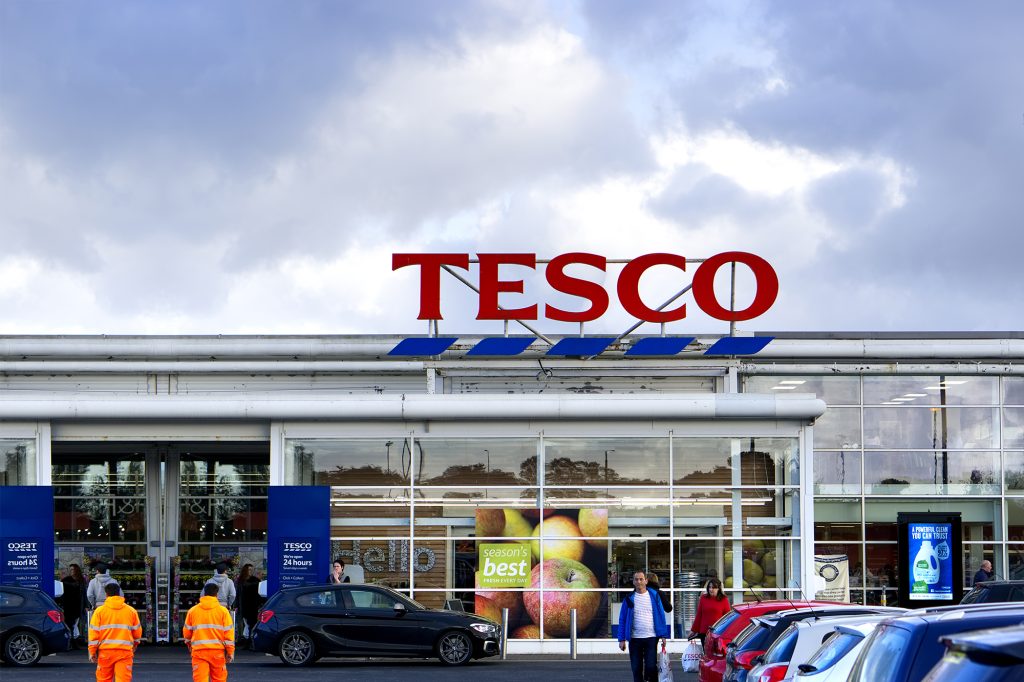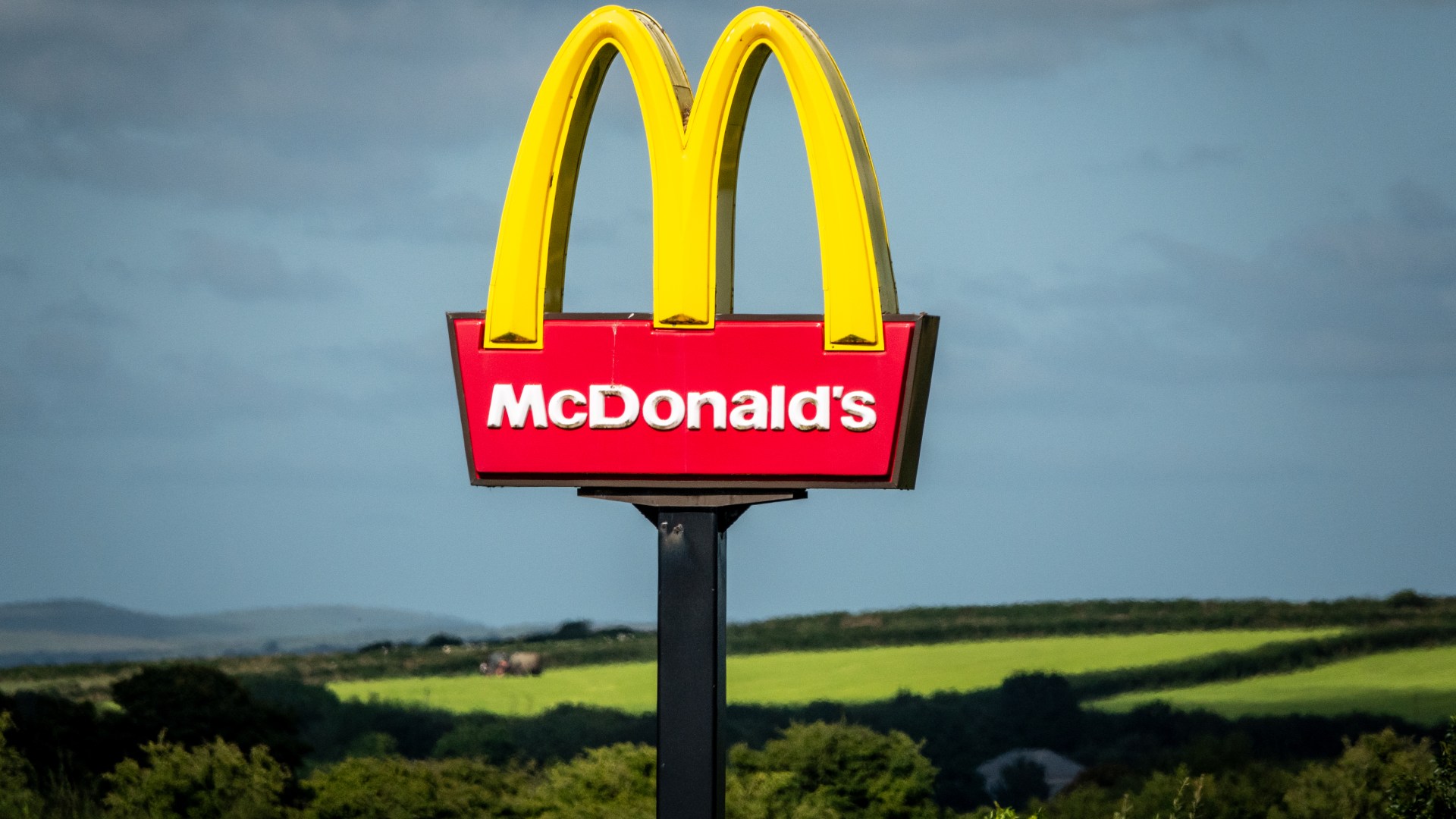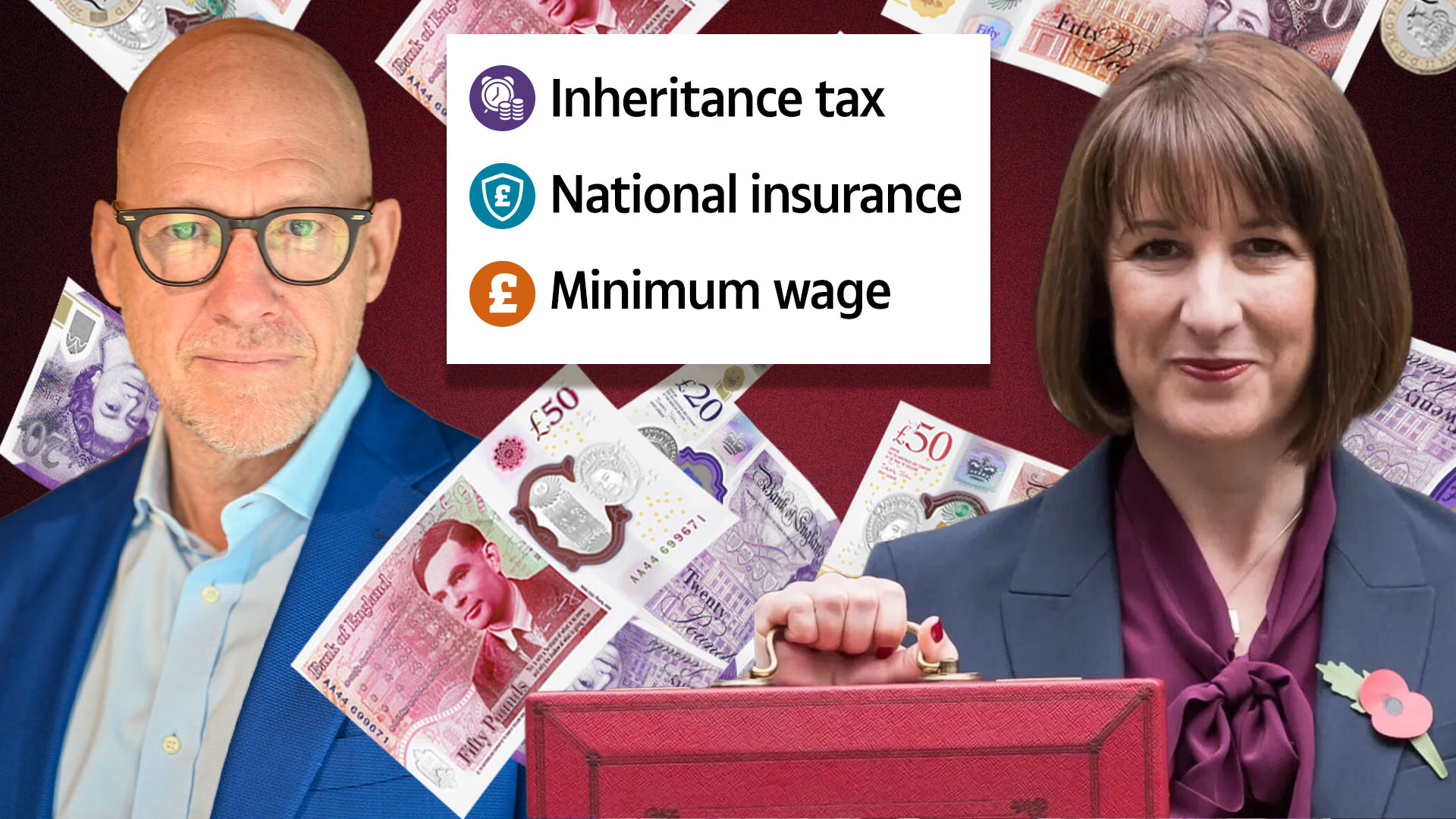Money
Supermarket Income REIT amends shareholder NAV-based returns to market-cap

Supermarket Income REIT will amend its management contract to a fee for shareholders based on market cap, rather than NAV.
The post Supermarket Income REIT amends shareholder NAV-based returns to market-cap appeared first on Property Week.
Money
Banks are paying out £1,000s in compensation after closing accounts by MISTAKE – could you be owed cash?

BANKING giants are paying out thousands of pounds in compensation after closing customers’ accounts by mistake, an investigation by The Sun has found.
We have found a number of cases where banks have shut customers’ accounts in error, but this has only come to light following intervention by the Financial Ombudsman Service (FOS).
Known as “de-banking”, banks can close an individual or business’s account if they deem that it poses a financial, legal, regulatory, or reputational risk.
This can sometimes leave customers unable to access their cash for days or even weeks if the bank freezes the account or sends them a refund via cheque.
But the biggest kicker is that banks are under zero obligation to tell you why they shut your account, leaving many customers wondering what they did wrong.
The number of complaints received by the FOS related to de-banking has increased by 69% since the financial year 2020/21, rising from 2,281 to 3,858 in 2023/24 – although these weren’t all related to mistakes by banks.
READ MORE ON BANK ACCOUNTS
But, it has emerged that some banks have closed customers’ accounts by mistake, but had refused to disclose this to the customer until the FOS got involved.
Sarah Coles, head of personal finance at Hargreaves Lansdown, told The Sun these findings could be “the tip of the iceberg” and that banks need to be quicker at putting things right if they make errors.
“There are plenty of examples in Ombudsman cases of errors that have meant accounts have been closed,” she said.
“This can be anything from an error of judgment to human error, or a fault in the systems which meant accounts were incorrectly updated.
“Given that most people give up fighting well before they involve the Ombudsman, this could be the tip of the iceberg.
“People make mistakes and we can’t expect them to be perfect, but we can expect banks to have processes in place to check these decisions and put things right as quickly as possible when things go wrong.”
THE CASES
The Sun trawled through dozens of entries on the FOS website and found a number of decisions showing de-banking errors over the past seven months, including from Barclays and NatWest.
In all of those cases, the FOS said the bank should pay disgruntled customers compensation for the inconvenience and distress caused – sometimes as much as thousands of pounds.
In several of those cases, the accounts were closed following what’s known as a KYC (Know Your Customer) review, where the bank can ask a customer for more information.
If a customer doesn’t return this information by a set deadline, the bank might react by shutting their account.
But some of these reviews have resulted in accounts being closed in error.
In one case we found, long-time NatWest customers known only as Mr and Mrs G complained to the FOS that their accounts were closed without explanation, causing them “inconvenience and worry”.
After initially refusing to provide reasons, NatWest later admitted it had mistakenly closed their accounts after the FOS intervened.
The FOS determined that NatWest had treated them unfairly, asking the bank to pay £350 and issue a letter of apology.
A spokesperson for Natwest said: “We are extremely sorry for the error we made in closing this account and have apologised and paid compensation to our customer. It is extremely rare for a customer’s account to be closed incorrectly.”
‘Barclays marked me as deceased and closed my account’
IN another case from the FOS we found, Barclays was asked to pay £800 in compensation after applying a deceased marker to account in error before then closing it by mistake.
The victim, known as “Mrs T”, complained that Barclays Bank UK PLC mistakenly marked her as deceased twice and in the end closed her account because of this.
This caused her significant inconvenience, as she also faced credit file issues and relied on others to make payments.
Barclays acknowledged it made an error, apologised, and initially offered £300 compensation.
But the FOS reviewed the case and found the compensation insufficient, proposing an increase to £800 and reimbursement of credit file monitoring subscriptions paid from September 2022 to January 2024.
Barclays agreed with the resolution, while Mrs T was asked to accept or reject the decision by 19 April 2024.
In another case, a customer known as “S” complained that Barclays wrongly closed their Business Premium account on 5 September, 2023 during a KYC review.
Barclays admitted the mistake, reopened the account after four weeks and offered £500 compensation for the inconvenience, but refused to cover the significant financial losses S claimed.
The FOS found Barclays should pay £3,850 for loss of profit, £500 for inconvenience, and 8% interest on the account balance.
Both parties partially accepted this decision.
‘My company accounts were closed even though I submitted everything Barclays asked for’
Barclays was also ordered to pay £200 to a company after it shut two of its accounts in error.
Company B, represented by Mr D, complained that Barclays unfairly closed its two bank accounts without notice during a KYC review.
Initially, not all the required information was provided, but Mr D fully cooperated and resubmitted a lost KYC form.
In June 2023, Mr D confirmed with Barclays that all necessary information had been provided.
On 19 October 2023, Barclays closed B’s business account, followed by the closure of the USD account on 1 November 2023.
After Mr D’s complaint, Barclays acknowledged the error, apologised and offered £200 compensation for the inconvenience.
Mr D found this offer insufficient, believing it didn’t reflect the time and effort he spent resolving the issue.
The Financial Ombudsman Service reviewed the case and determined that £200 was fair compensation, as there was no evidence of significant financial loss.
Barclays agreed to pay the £200, and the complaint was upheld in September 2024.
A Barclays spokesperson said of these cases: “We are unable to comment on the details of these specific cases without the consent of our customers.
“However, we respect the decisions made by the Financial Ombudsman Service and are sorry for any occasions where we failed to provide the usual high levels of service that our customers can expect to receive.”
What is ‘de-banking’ and why might my account be closed?
De-banking is where your account is closed against your will.
Banks should generally allow customers 30 days to make alternative banking arrangements before axing their account, but in some urgent cases you may get no warning at all.
Perhaps one of the most well-known recent cases of de-banking is when Coutts Private Bank closed the account of Nigel Farage, the former UK Independence Party leader, in June 2023.
Lenders can suspend accounts if they detect any “suspicious activity”, such as sending or receiving large amounts of unexplained money or transactions don’t fit with the user’s typical spending pattern.
If a bank suspects a customer has been victim of a fraud – where large sums of money are sent – it will also close the account.
Which? Money editor Jenny Ross says: “Under some circumstances, banks are allowed to close accounts without notice and without providing a reason.
“This includes suspected fraudulent use of the account.”
Your bank could put an immediate freeze on your account if it sees spending or large transfers in or out that seem suspicious.
It might block money from leaving your account to help protect you if it’s worried that you’ve fallen victim to fraudsters.
Similarly, if a large amount of money is received, it might suspect you’ve been caught up in a money-laundering operation.
Fraudsters can manipulate customers into becoming so-called money mules.
This means that they might be helping crooks to move around cash earned from crime without even knowing it.
Sometimes victims believe they are helping out a friend or that they are being paid for a job that seems legitimate.
After putting a temporary freeze on your account, the bank will then investigate more thoroughly.
If it’s still not satisfied after this, it can permanently close your account.
Your bank could decide to ditch you as a customer simply because you don’t meet its terms and conditions.
For example, when you signed up you might have agreed to pay in a certain amount each month or to set up several direct debits.
In this type of situation, the bank would need to give you at least 30 days’ notice so you can move your money elsewhere.
In July last year, the Treasury confirmed it was looking into the rules surrounding closing bank accounts, such as upping the period to three months instead of 30 days.
But the government has not yet revealed any plans to enforce these proposals. The Sun has asked for an update when possible.
What you can do if your bank account is closed
Which? says that those who believe their bank account has been unfairly closed should attempt to make alternative arrangements for their payments to avoid fees or charges.
They should then make a complaint to their bank and make a data request to Cifas online to check for a marker, which they can then contest.
If that fails, customers could then attempt to make a complaint through the FOS.
Customers who successfully make a claim may not have their account reopened, but they could receive compensation and an apology.
But it’s worth bearing in mind that this can be a lengthy process and it might take a long time before you see any compensation.
Do you have a money problem that needs sorting? Get in touch by emailing money-sm@news.co.uk.
Plus, you can join our Sun Money Chats and Tips Facebook group to share your tips and stories
Money
McDonald’s is making a big change to menus TODAY and customers are divided

MCDONALD’S fans are in for a treat as the fast food chain is launching two new burgers on its menus from today.
The home of the Golden Arches is selling a Chilli Double Cheeseburger, and the Double Big Mac is returning to restaurants after nearly two months.
The Chilli Double Cheeseburger will land across McDonald’s 1,300-plus stores from today (Wednesday, November 6).
As part of the fast food giant’s saver menu, it will cost just £2.49.
The new cheeseburger will feature two 100% British and Irish beef patties, two slices of cheese, onions, jalapenos, pickles and spicy relish in a toasted bun.
But there has been a mixed reaction to the new menu addition.
One social media user commented: “Omg need to try this!”
Someone else said: “Ooh looking forward to this.”
Another person said: “Looks lovely! I’ll order quadruple and Coca-Cola!”
However, others were less convinced.
One social media user said: “If it is anything like their other food they can keep it.”
Another person added: “Be better doing your own at home – McDonald’s is rubbish!”
One person said: “I’m so trying one of these! Bet it’s still bland though.”
And another added: “I have to be honest…I don’t like McDonalds but this could be special.”
Tom Church, Co-Founder of LatestDeals.co.uk, said: “A spicy twist on a classic burger is bound to create mixed reactions, but it’s an interesting way to heat things up on the Saver’s Menu.”
Meanwhile, the Double Big Mac is making a return to stores and will be available at all 1,400 McDonald’s.
The McDonald’s Saver’s menu in full

The McDonald’s budget savers range features the following eleven items.
Hamburger – £1.19
Cheeseburger – £1.39
Double Cheeseburger – £2.29
Mayo Chicken – £1.39
Small Fries – £1.19
Mini Core McFlurry – £1.29
Chilli Double Cheeseburger – £2.49
Small Milkshake – £1.99
Small Drinks – £1.19
Americano – £1.39
White Coffee – £1.39
You can find your nearest site using the locator tool on the chain’s website.
The burger features four beef patties, double the iconic sauce and lettuce, cheese, pickles, and onions on a sesame seed bun.
This is unlike the original Big Mac, which just features two patties, alongside the buns, sauce and dressings.
The limited edition menu item will be hitting restaurants from today – but if you’re keen to give one a go, you need to act quickly as the burger will be vanishing on November 19.
This means customers have around two weeks to get their hands on one.
Prices start from £5.39 for a single item and if you want to add a drink and chips it will cost £7.19.
The news has been welcomed so far, with one social media user commenting: “This looks so good.”
Another simply said: “Banging”.
It comes as Maccies revealed it is shaking up its budget savers range.
Drinks will now be added to the discounted menu with all items costing under £3.
You can read the newly updated menu below:
McDonald’s has rolled out several value schemes for customers.
For example, earlier this month, it launched a £5 meal deal letting customers choose from two different burger options, plus chicken nuggets on the side, along with a medium drink and fries.
When priced individually, a Cheeseburger or Mayo Chicken burger cost £1.39 each, Chicken McNuggets (4 Pieces) cost £2.79, Medium Fries cost £1.69 and a Medium Carbonated Soft Drink is £1.59.
The four items would typically cost £7.46, but customers can now save £2.50 if they opt for the £5 meal deal.
However, it is not guaranteed that every Maccies is running this offer and it is not available via delivery.
This is the list of restaurants where the offer isn’t running:
- Cobham MSA
- Plymouth Billacombe
- Walkden
- Tyldesley
- ASDA Leigh
- Leigh
- Leigh Retail Park
- Holyhead Road, West Brom
Customers can also benefit from MyMcDonald’s Rewards which is available to all McDonald’s app users.
Customers collect points by buying food from the fast food chain and exchanging these points for their fave meals, with 100 points earned with every £1 spent at the chain.
There are 15 items you can get for free once you’ve earned enough points, including popular breakfast items and McFlurries.
To sign up for the loyalty scheme, you’ll need to download the MyMcDonald’s app which you can do for free via Google Play or the App Store.
If you order and pay through the MyMcDonald’s app, your points will automatically be banked.
What else is new at McDonald’s?
McDonald’s regularly shakes up its menu to make way for new items.
The fast-food joint has just recently welcomed the return of the McRib burger after a near-decade hiatus.
Fans went wild when Maccies teased the return of the pork-based burger, but when it landed in stores earlier this month it was met with mixed reviews.
One customer said: “It’s not the same. The dry little sauce on top is nothing like the pic or what it used to be, shame on McDonald’s.”
If you are keen to try it yourself, it is currently on sale for £4.49 as an individual item or £6.19 as part of a medium extra-value meal deal, which also includes fries and a medium drink.
Dairy lovers have also been treated to brand-new cheese sides.
These Mozzarella and Emmental bites have a smoky caramelised onion-flavoured breadcrumb coating.
They come in portions of five for £2.49 or a sharebox of fifteen for £6.79.
How to save at McDonald’s
You could end up being charged more for a McDonald’s meal based solely on the McDonald’s restaurant you choose.
Research by The Sun found a Big Mac meal can be up to 30% cheaper at restaurants just two miles apart from each other.
You can pick up a Big Mac and fries for just £2.99 at any time by filling in a feedback survey found on McDonald’s receipts.
The receipt should come with a 12-digit code which you can enter into the Food for Thought website alongside your submitted survey.
You’ll then receive a five-digit code which is your voucher for the £2.99 offer.
There are some deals and offers you can only get if you have the My McDonald’s app, so it’s worth signing up to get money off your meals.
The MyMcDonald’s app can be downloaded on iPhone and Android phones and is quick to set up.
You can also bag freebies and discounts on your birthday if you’re a My McDonald’s app user.
The chain has recently sent out reminders to app users to fill out their birthday details – otherwise they could miss out on birthday treats.
Money
Aldi’s Kevin the Carrot toys RETURN for Christmas including new characters – exact date they hit stores

ALDI’s popular Kevin the Carrot-themed plush toys are set to return to stores for the festive season.
Shoppers will be able to pick up a host of characters from this year’s Christmas ad including Kevin, Katie and the Humbug.
The ad features the popular Kevin character taking on the evil Dr Humbug bent on stealing the Christmas spirit.
Viewers see Kevin sleeping on a dinner plate awoken by a message from Santa tasking him with the rescue mission.
Kevin then enlists the help of his wife Katie using disguises and a case with a “false bottom’” to steal the spirit back from the evil Dr Humbug and her minions in a Mission Impossible-style clip.
Kevin first appeared on the Christmas ad in 2016 and has every year since. You can view this year’s ad in full above.
To mark the new advert, Aldi is unveiling the selection of themed Specialbuys in its middle aisle from next Thursday (November 14).
Customers can snap up Kevin and Katie Plush toys for £3.99 each from the Christmas range.
Meanwhile, the Humbug toy is in stock for the same price while there’s a larger and new My Pal Kevin the Carrot toy, which comes with long arms and legs, on sale for £9.99.
Also in the range are Christmas Tree Plush Decorations for £2.99 based on the Kevin, Katie and Humbug characters.
There are even Kevin and Katie Christmas Pyjamas up for grabs for £5.99 while a Kevin-themed book is selling for £2.99.
It’s worth bearing in mind, Specialbuys are limited edition so when they’re gone, they’re gone.
You can find your nearest Aldi store by using the retailer’s branch locator on its website.
Aldi’s Kevin the Carrot character has surged in popularity since his first unveiling in the retailer’s Christmas ad in 2016.
Themed toys were also released that year, with shoppers rushing to buy them in the years since, including in 2017, 2019, 2021 and last year.
The vegetable-based character has appeared in multiple ads since his first unveiling eight years ago too.
In 2021, he starred alongside footballer Marcus Rashford who appeared as a radish.
In 2019, Kevin hit screens alongside a new character Russell Sprout and a Brummy gang of “Leafy Blinders”.
Following the release of last year’s Christmas ad, shoppers went into a frenzy after Aldi released Kevin the Carrot themed toys, with huge crowds seen queuing up outside their local stores from as early as 4am.
The launch of the Christmas range this year comes after Aldi announced it will shutter all its branches on Boxing Day to give staff time off over the festive period.
It joined a host of others including Poundland, Wilko and The Range and B&Q.
How to save money at Aldi
It’s worth keeping an eye out for any red sticker products, which staff add to items when they’ve been reduced in price.
Aldi tends to add them to items in the morning so it’s best to get in there early if you want to get the best discounts.
Keep an eye out for slashed-price fruits and vegetables as well – the retailer tends to reduce six items every two weeks to “silly low” prices, according to deals expert Tom Church.
Get ahead of the crowd by signing up to Aldi’s newsletter and following the retailer on social media as well.
It often announces upcoming deals via the two channels so you can snap up the best prices before anyone else.
And of course, take advantage of Aldi’s cheap alcohol which could save you some cash compared to going with branded versions.
When’s the best time to shop at Aldi?
WHEN it comes to shopping at Aldi, the best time to do so depends on what you want to buy.
For reduced items – when shops open
Red sticker items are rare at Aldi’s 830 UK stores, but the supermarket says that none of its food goes to waste so there are some to be found – if you’re quick.
A spokesman for the supermarket said: “All items are reduced to 50 per cent of the recommend sales price before stores open on their best before or use by dates.”
That means you have the best chance of finding reduced food items if you go into stores as soon as it opens.
Opening times vary by shop but a majority open from 7am or 8am. You can find your nearest store’s times by using the supermarket’s online shop finder tool.
For Specialbuys – Thursdays and Sundays
Specialbuys are Aldi’s weekly collection of items that it doesn’t normally sell, which can range from pizza ovens to power tools.
New stock comes into stores every Thursday and Sunday, so naturally, these are the best days to visit for the best one-off special deals.
For an even better chance of bagging the best items, head there for your local store’s opening time.
Remember: once they’re gone, they’re gone, so if there’s something you really want, visit as early as possible
Do you have a money problem that needs sorting? Get in touch by emailing money-sm@news.co.uk.
Plus, you can join our Sun Money Chats and Tips Facebook group to share your tips and stories
Money
I grew up in a council house and now run a £1.3bn business – why Labour’s Budget is an absolute disaster

ENTREPRENEUR Ryan Howsam, who grew up in a council house and now runs a £1.3billion business, has slammed Labour’s Budget as an ‘absolute disaster’ for small firms.
In an exclusive interview with The Sun, the insurance boss warned that Labour’s recent Budget will kill family businesses and force firms to cut wages.
The founder and chairman of insurer Staysure blasted changes to inheritance tax, National Insurance and minimum wage.
Mr Howsam set up his first business at 19 and is now the chief executive of a major, family-run insurance company which employs over 700 people.
Family-run businesses form around 86% of the UK’s private sector, according to the Family Business Research Foundation, most of which are considered “small to medium” businesses (SMEs).
But several changes announced in the Budget last week were targeted at increasing costs for those firms, which Mr Howsam says will see more firms close and a loss of opportunities for everyone.
For example, he said the government’s increase to the Living and Minimum Wages by 6.7% and 16%, respectively, as well as employers’ National Insurance will mean firms have to cut wage growth.
Meanwhile, he said the changes to bring family business assets into the scope of inheritance tax (IHT) will force more family businesses to close, or their families will have to sell them at a reduced price to pay the tax bill.
“I don’t really think [the Budget] served lower-income households very well, as minimum wage growth and the National Insurance increase will hit businesses’ ability to grow, and that will ultimately mean there’s less wage growth and less opportunity,” he explained.
“And the changes to inheritance tax are an absolute disaster.
“I come from a council house background, so I’m as working class as you get and I understand people having less disposable income.
“But this narrative that Labour has got that we should hammer anybody who has got money and wants to succeed is like biting the hand that feeds you. Why would you do that?
“These are the people bringing the cash in and paying the majority of our tax.”
‘Changes to IHT will kill family businesses’
Changes to bring family businesses into the scope of inheritance tax (IHT) will mean families having to pay 20% tax on assets over £1million.
Previously, family businesses were exempt from IHT if left to a loved one.
But now this exemption will only apply to the first £1million of assets in the businesses, which Mr Howsam says means families will have to sell their busniess at a reduced price to pay the remaining tax bill.
“Most family businesses are not quoted on the stock market, which means HMRC will have to put an arbitrary value on them, and then the family has just got to come up with that money,” he explained.
“If you take a business valued at £4million, that business might only have £100,000 in the bank, but 20% of £4million (without business relief on the first £1million) is £800,000. Where are the family going to get £800,000 from, plus interest?
“They won’t – the only way the money will come in is it they sell the business for a lot less than it’s worth because they are desperate.
“So, these families have worked their whole lives, but they will be forced to sell the business or try to come up with an awful lot of money. It’s a really stupid move.”
‘Targeting the wealthy will mean more tax for everyone’
Mr Howsam added that targeting wealth and businesses will ultimately end up increasing taxes for everyone if those people decide to leave the UK.
“Around 4,500 millionaires left the country last year, and this year it’s forecast to be 9,500 millionaires,” he said.
“You may think that doesn’t matter, but it does matter, because the top 1% of taxpayers pay 28% of HMRC‘s tax take – and then there’s the money they spend, which puts their tax take up to 36%.
“If those people leave, who do you think is going to have to pay more? The country is just getting less well off as a result.”
The government’s plan to also include pensions in the scope of IHT will also mean far more people end up paying the death tax, he said.
Currently, only around 4% of families pay IHT, but Mr Howsam says the changes in the Budget will trickle down and start hitting mid-to-low income families.
“IHT is going to hit middle income people in a big way, and then it’s going to start coming down towards lower-income people too, if they have a bigger pension pot,” he said.
Other announcements in the Budget
In the Budget last week, Labour announced a raft of measures to fill a £22billion “black hole” in the country’s finances allegedly left by the previous government.
A few of those measures included the changes to IHT, a crackdown on benefit fraud, a hike in tobacco duty and a stamp duty increase on second homes.
However, there was some good news for savers in the Budget.
Benefits like Universal Credit and Attendance Allowance will rise by 1.7% in line with September’s inflation figure. Ms Reeves also confirmed the state pension will rise by up to £473 next year.
The minimum wage is also set to rise for workers aged 21 and over by 6.7% from next April from £11.44 to £12.21.
We have rounded up legal ways to avoid inheritance tax here.
WHAT ELSE IS HIDDEN IN THE SMALL PRINT?
WE scoured the Budget documents to find these announcements hidden in the small print . . .
CHILD BENEFIT REFORM AXED
THE reform to base Child Benefit on total household income will not be going ahead.
Under current rules, two parents earning £59,000 a year – £118,000 in total – receive the benefit in full.
But a household could have a lot less in total income and not get the full payment if one of the parents earns over £60,000. This will now remain the case.
‘HELP TO SAVE’ EXTENDED
THE Government will extend the current Help To Save until April 5, 2027.
The scheme, where those on low incomes and Universal Credit can get a cash bonus of £1,200 over four years, was due to end in 2025.
‘MORTGAGE GUARANTEE’ PERMANENT
BUYERS can get a 95 per cent loan-to-value mortgage through the mortgage guarantee scheme which is now being made permanent.
The scheme had been set to end next year.
SELF-ASSESSMENT SHAKE-UP
A BUMPER £16million will be invested to modernise the HMRC’s app so self-assessment taxpayers can make voluntary advance payments on their tax bill in instalments.
STAMP DUTY RELIEF
FOR first-time buyers, Stamp Duty will rise from April – but you have five months to make a purchase and beat the increase.
An independent mortgage broker can help you work out how much you can borrow to set your budget.
Money
Major high street bank to launch new buy now, pay later product next year to rival Klarna and PayPal

A MAJOR bank is gearing up to launch a brand new “buy now, pay later” product to rival the likes of Klarna, ClearPay and PayPal.
Lloyds Bank is creating its own “split payments” option that will allow its customers to spread the cost of items and services bought online over time, The Sun understands.
The product will be fully regulated by the Financial Conduct Authority (FCA), which most buy now, pay later (BNPL) products currently aren’t, but will be by 2026 under plans by the government.
It is understood the product will be an entirely new and independent payment option that will appear at checkouts like Klarna or ClearPay and won’t be linked to existing products like credit cards.
In some cases, it may be offered as an exclusive split payment option for its 27million customers, while at other merchants it will appear alongside other similar payment options.
Lloyds will also launch a dedicated mobile app for the product where users will be able to see all of their instalment plans in one place.
More on buy now, pay later
While Lloyds could not confirm exact timings, it is understood the product could be available from as early as next year.
It will only be available with a small number of merchants initially and will then roll out more widely, with the long-term goal being to “show up at the end of millions of online purchase journeys”.
The focus will be on targeting merchants that offer goods and services where it makes sense to spread payments.
It is not currently known whether the product will charge any extra fees or what the interest rate will be, but Lloyds said it will update The Sun when it has more details to share.
Lloyds is creating the product following feedback from customers that they wanted more payment options when buying online.
Lloyds has also reported seeing an increase in customers choosing to spread their payments over time, which has led to it wanting to create its own offering.
It is understood that the bank is currently recruiting extra staff internally to help with the rollout of the product, and is working with New Day, the firm behind the John Lewis Partnership Card.
The plans follow the launch of US BNPL brand Affirm in the uK earlier this week. It will let users pay in instalments such as six, nine or 12 months and will not charge any extra fees.
They also come after a recent announcement from the government to pass legislation to regulate the buy now, pay later (BNPL) sector by early next year, with regulation in place by 2026, as revealed exclusively by The Sun.
The new rules will mean BNPL users will get extra protections when using the products, including Section 75 protection and the ability to complain to the Financial Ombudsman if things go wrong.
It’s important to make sure you can afford to meet any payments before taking out an instalment plan to avoid damaging your credit score or ending up with any late fees.
The history of banks and BNPL products
Lloyds Bank is not the first lender to venture into the BNPL space.
Rival high street bank NatWest has previously had its own BNPL product, which was available for its 18million customers – although was used by far fewer.
NatWest launched the product, which allowed customers to spread purchases over four interest-free monthly instalments, to much fanfare in summer 2022, saying it had seen “clear demand” for BNPL.
But the bank axed the product on May 7 last year after seeing far lower take-up than expected.
Credit card provider American Express also launched its own BNPL option, “Plan It”, in February this year.
The option allows customers to spread payments over three, six or 12 months interest-free with a fixed monthly fee.
Usually with a credit card you pay off the full balance each month at no extra cost, or make the minimum repayment and pay interest. But Plan It means they can extend the interest-free period for a small fee.
For example, repaying £1,000 over six months would come with a £10.70 monthly fee – so £64.20 overall – while borrowing with 30% interest would cost £95.79 per month.
Credit card need-to-knows

Not using a credit card effectively can wreak havoc on your finances and your credit score.
If you don’t keep up with repayments or default on your debt, you are likely to get a black mark on your credit record, which could affect your ability to get a credit card, loan or mortgage in the future.
It’s important not to let yourself get sucked into overspending.
You should always clear the full balance as soon as possible.
If you have a poor credit score, don’t bank on being approved for a card or getting the 0% deal you’d hoped for.
Card providers only have to give the advertised rate to 51% of applicants, so you could end up paying more interest than you bargained for.
If you’ve got a poor credit record, you’re less likely to get the best rates.
And if you are looking for a new credit card, don’t apply for lots at once.
After your 0% period is up, lenders can charge upwards of 40% interest, so if you have not repaid the debt fully by then, try to move the debt onto another 0% deal.
What are the BNPL regulation changes?
The Labour government confirmed last month that it intends to legislate to bring BNPL products under the FCA’s rule by early 2025, which would mean regulation would kick in by 2026.
Plans to regulate these products have been repeatedly delayed, which is bad news for shoppers as no regulation means customers aren’t protected if things go wrong.
Under the plans, firms will have to be clear and transparent about late fees and how they could impact customers’ credit ratings.
Affordability checks will also be strengthened and shoppers who feel they’ve been treated unfairly will be able to complain to the Financial Ombudsman Service (FOS), which resolves disputes with financial firms.
These products will also be subject to the Consumer Credit Act and Section 75, so shoppers will be able to complain if products are falsely advertised and can get their money back if items are faulty.
Some split payment products are already regulated. For example, Zilch, which is considered a BNPL firm, is already under FCA regulation.
Do you have a money problem that needs sorting? Get in touch by emailing squeezeteam@thesun.co.uk
Money
Brits now ‘saving for a sunny day’ as they pivot to spending cash while they can

NEARLY a third of Brits (29%) feel a “rainy day fund” is outdated and would rather save for specific things to look forward to.
A poll of 2,000 adults found 36% adopt a “you can’t take it with you” approach, preferring to spend their cash while they can, rather than putting it aside for emergencies.
And 34% have a plan in place for how to spend their savings on a big-ticket item, with 67% finding it rewarding to spend what they’ve saved.
While 42% feel they work hard for their money and enjoy putting it towards something they really want, financial advisor and content creator Mr MoneyJar references this to be “saving for a sunny day”.
More than one in 10 (11%) are planning to put their cash towards a memorable experience like a festival, concert or spa day.
Sean Morley, head of savings at Post Office, which commissioned the research, said: “Attitudes to savings are changing, with more people placing emphasis on saving for the good times rather than for a ‘rainy day’.
“Our findings show that there’s a growing demand to cater for different types of savers – with some wanting to achieve lifetime milestones, and other savings reserved for enjoyment.”
“We recognise that people prefer to save in different ways for different reasons, whether you want to open a savings account in branch or online, we’re committed to making saving accessible for everyone, no matter their goals.”
The research also found 31% of adults recall being told by their parents how to save money but were given the freedom to decide when to save and spend.
Although 20% remember being encouraged to save as much as they could but weren’t advised on what they should spend the money on.
It emerged 30% find saving money more exciting than five years ago, with 40% claiming they “always or often” manage to hit their goals.
More than half (57%) put their money in a regular savings bank account, while 46% opt for ISAs, and 18% use schemes like Premium Bonds.
However, one in five don’t feel confident they know the difference between an ISA and a normal savings account, with Gen Z the least sure about these savings options and over 65s the most clued up.
The research, conducted via OnePoll, also found only 22% of Gen Z and 34% of Millennials are putting money aside for unforeseen costs.
But this figure rises to 44% of Gen X and 43% of Baby Boomers.
And while Millennial savers are the most likely to be working towards a house deposit (22%), they are also commonly saving up for special occasions – such as weddings and stag or hen dos (15%).
More than half (59%) of those aged 18 to 24 even find excitement in saving money, compared to just 14% of those 65 and over.
Mr MoneyJar, who has teamed up with Post Office, added: “While saving is essential for financial security, we all work incredibly hard for our money and so it’s entirely right that we get to enjoy the fruits of our labour, not just in the future, but in the present too, and spend it on experiences and things we enjoy.
“Money is a tool, and spending money on things that will create positive memories and enjoyable experiences today is just as important as saving for tomorrow as memories and experiences improve your overall quality of life and encourage personal growth.
“Different types of savings work for different types of people and it’s important to save for things in a balanced way.
“So absolutely save for that sunny day or that special purchase you’ve always wanted, but make sure to have a separate pot of cash set aside for a rainy day as well.”
How you can find the best savings rates
If you are trying to find the best savings rate there are websites you can use that can show you the best rates available.
Doing some research on websites such as MoneyFacts and price comparison sites including Compare the Market and Go Compare will quickly show you what’s out there.
These websites let you tailor your searches to an account type that suits you.
There are three types of savings accounts fixed, easy access, and regular saver.
A fixed-rate savings account offers some of the highest interest rates but comes at the cost of being unable to withdraw your cash within the agreed term.
This means that your money is locked in, so even if interest rates increase you are unable to move your money and switch to a better account.
Some providers give the option to withdraw but it comes with a hefty fee.
An easy-access account does what it says on the tin and usually allow unlimited cash withdrawals.
These accounts do tend to come with lower returns but are a good option if you want the freedom to move your money without being charged a penalty fee.
Lastly is a regular saver account, these accounts generate decent returns but only on the basis that you pay a set amount in each month.
Do you have a money problem that needs sorting? Get in touch by emailing money-sm@news.co.uk.
Plus, you can join our Sun Money Chats and Tips Facebook group to share your tips and stories
-

 Science & Environment2 months ago
Science & Environment2 months agoHow to unsnarl a tangle of threads, according to physics
-

 Technology1 month ago
Technology1 month agoIs sharing your smartphone PIN part of a healthy relationship?
-

 Science & Environment2 months ago
Science & Environment2 months agoHyperelastic gel is one of the stretchiest materials known to science
-

 Science & Environment2 months ago
Science & Environment2 months ago‘Running of the bulls’ festival crowds move like charged particles
-

 Technology2 months ago
Technology2 months agoWould-be reality TV contestants ‘not looking real’
-

 Science & Environment1 month ago
Science & Environment1 month agoX-rays reveal half-billion-year-old insect ancestor
-

 Science & Environment2 months ago
Science & Environment2 months agoPhysicists have worked out how to melt any material
-

 Science & Environment2 months ago
Science & Environment2 months agoMaxwell’s demon charges quantum batteries inside of a quantum computer
-

 Money1 month ago
Money1 month agoWetherspoons issues update on closures – see the full list of five still at risk and 26 gone for good
-

 Sport1 month ago
Sport1 month agoAaron Ramsdale: Southampton goalkeeper left Arsenal for more game time
-

 Science & Environment2 months ago
Science & Environment2 months agoSunlight-trapping device can generate temperatures over 1000°C
-

 MMA1 month ago
MMA1 month ago‘Dirt decision’: Conor McGregor, pros react to Jose Aldo’s razor-thin loss at UFC 307
-

 News1 month ago
News1 month agoWoman who died of cancer ‘was misdiagnosed on phone call with GP’
-

 Football1 month ago
Football1 month agoRangers & Celtic ready for first SWPL derby showdown
-

 Technology1 month ago
Technology1 month agoUkraine is using AI to manage the removal of Russian landmines
-

 Technology1 month ago
Technology1 month agoGmail gets redesigned summary cards with more data & features
-
Business1 month ago
how UniCredit built its Commerzbank stake
-

 News1 month ago
News1 month ago‘Blacks for Trump’ and Pennsylvania progressives play for undecided voters
-

 Science & Environment2 months ago
Science & Environment2 months agoLaser helps turn an electron into a coil of mass and charge
-

 Science & Environment2 months ago
Science & Environment2 months agoA new kind of experiment at the Large Hadron Collider could unravel quantum reality
-

 Sport1 month ago
Sport1 month agoBoxing: World champion Nick Ball set for Liverpool homecoming against Ronny Rios
-

 Technology1 month ago
Technology1 month agoEpic Games CEO Tim Sweeney renews blast at ‘gatekeeper’ platform owners
-

 Science & Environment2 months ago
Science & Environment2 months agoLiquid crystals could improve quantum communication devices
-

 Technology1 month ago
Technology1 month agoRussia is building ground-based kamikaze robots out of old hoverboards
-

 Technology1 month ago
Technology1 month agoSamsung Passkeys will work with Samsung’s smart home devices
-

 Science & Environment2 months ago
Science & Environment2 months agoWhy this is a golden age for life to thrive across the universe
-

 Science & Environment2 months ago
Science & Environment2 months agoQuantum ‘supersolid’ matter stirred using magnets
-

 MMA1 month ago
MMA1 month agoDana White’s Contender Series 74 recap, analysis, winner grades
-

 News1 month ago
News1 month agoNavigating the News Void: Opportunities for Revitalization
-

 Sport1 month ago
Sport1 month ago2024 ICC Women’s T20 World Cup: Pakistan beat Sri Lanka
-

 Entertainment1 month ago
Entertainment1 month agoBruce Springsteen endorses Harris, calls Trump “most dangerous candidate for president in my lifetime”
-

 Technology1 month ago
Technology1 month agoMicrosoft just dropped Drasi, and it could change how we handle big data
-

 News1 month ago
News1 month agoMassive blasts in Beirut after renewed Israeli air strikes
-

 MMA1 month ago
MMA1 month ago‘Uncrowned queen’ Kayla Harrison tastes blood, wants UFC title run
-

 MMA1 month ago
MMA1 month agoPereira vs. Rountree prediction: Champ chases legend status
-

 Technology1 month ago
Technology1 month agoCheck, Remote, and Gusto discuss the future of work at Disrupt 2024
-

 News1 month ago
News1 month agoRwanda restricts funeral sizes following outbreak
-

 Technology1 month ago
Technology1 month agoMicrophone made of atom-thick graphene could be used in smartphones
-
Business1 month ago
Top shale boss says US ‘unusually vulnerable’ to Middle East oil shock
-

 TV1 month ago
TV1 month agoসারাদেশে দিনব্যাপী বৃষ্টির পূর্বাভাস; সমুদ্রবন্দরে ৩ নম্বর সংকেত | Weather Today | Jamuna TV
-

 Business1 month ago
Business1 month agoWater companies ‘failing to address customers’ concerns’
-

 Sport1 month ago
Sport1 month agoWXV1: Canada 21-8 Ireland – Hosts make it two wins from two
-

 News1 month ago
News1 month agoCornell is about to deport a student over Palestine activism
-

 Business1 month ago
Business1 month agoWhen to tip and when not to tip
-

 Science & Environment2 months ago
Science & Environment2 months agoQuantum forces used to automatically assemble tiny device
-

 Technology1 month ago
Technology1 month agoWhy Machines Learn: A clever primer makes sense of what makes AI possible
-

 News2 months ago
News2 months ago▶️ Hamas in the West Bank: Rising Support and Deadly Attacks You Might Not Know About
-

 Technology1 month ago
Technology1 month agoSingleStore’s BryteFlow acquisition targets data integration
-

 News1 month ago
News1 month agoHull KR 10-8 Warrington Wolves – Robins reach first Super League Grand Final
-

 Science & Environment2 months ago
Science & Environment2 months agoITER: Is the world’s biggest fusion experiment dead after new delay to 2035?
-

 Technology2 months ago
Technology2 months agoMeta has a major opportunity to win the AI hardware race
-

 Science & Environment2 months ago
Science & Environment2 months agoA slight curve helps rocks make the biggest splash
-

 MMA1 month ago
MMA1 month agoKayla Harrison gets involved in nasty war of words with Julianna Pena and Ketlen Vieira
-

 Football1 month ago
Football1 month ago'Rangers outclassed and outplayed as Hearts stop rot'
-

 Technology1 month ago
Technology1 month agoLG C4 OLED smart TVs hit record-low prices ahead of Prime Day
-

 News1 month ago
News1 month ago▶ Hamas Spent $1B on Tunnels Instead of Investing in a Future for Gaza’s People
-

 Sport1 month ago
Sport1 month agoShanghai Masters: Jannik Sinner and Carlos Alcaraz win openers
-

 Science & Environment2 months ago
Science & Environment2 months agoNuclear fusion experiment overcomes two key operating hurdles
-

 Sport1 month ago
Sport1 month agoChina Open: Carlos Alcaraz recovers to beat Jannik Sinner in dramatic final
-

 Football1 month ago
Football1 month agoWhy does Prince William support Aston Villa?
-

 MMA1 month ago
MMA1 month agoPennington vs. Peña pick: Can ex-champ recapture title?
-

 Sport1 month ago
Sport1 month agoPremiership Women’s Rugby: Exeter Chiefs boss unhappy with WXV clash
-

 Money4 weeks ago
Money4 weeks agoTiny clue on edge of £1 coin that makes it worth 2500 times its face value – do you have one lurking in your change?
-

 Technology1 month ago
Technology1 month agoMusk faces SEC questions over X takeover
-

 Sport1 month ago
Sport1 month agoCoco Gauff stages superb comeback to reach China Open final
-

 Womens Workouts1 month ago
Womens Workouts1 month ago3 Day Full Body Women’s Dumbbell Only Workout
-

 Technology1 month ago
Technology1 month agoUniversity examiners fail to spot ChatGPT answers in real-world test
-
Business1 month ago
Bank of England warns of ‘future stress’ from hedge fund bets against US Treasuries
-
Travel1 month ago
World of Hyatt welcomes iconic lifestyle brand in latest partnership
-

 Sport1 month ago
Sport1 month agoSturm Graz: How Austrians ended Red Bull’s title dominance
-

 MMA1 month ago
MMA1 month ago‘I was fighting on automatic pilot’ at UFC 306
-

 TV1 month ago
TV1 month agoTV Patrol Express September 26, 2024
-

 News1 month ago
News1 month agoGerman Car Company Declares Bankruptcy – 200 Employees Lose Their Jobs
-

 Sport1 month ago
Sport1 month agoWales fall to second loss of WXV against Italy
-

 Science & Environment2 months ago
Science & Environment2 months agoTime travel sci-fi novel is a rip-roaringly good thought experiment
-

 Science & Environment2 months ago
Science & Environment2 months agoNerve fibres in the brain could generate quantum entanglement
-

 MMA1 month ago
MMA1 month agoHow to watch Salt Lake City title fights, lineup, odds, more
-
Business1 month ago
DoJ accuses Donald Trump of ‘private criminal effort’ to overturn 2020 election
-
Business1 month ago
Sterling slides after Bailey says BoE could be ‘a bit more aggressive’ on rates
-

 Sport1 month ago
Sport1 month agoURC: Munster 23-0 Ospreys – hosts enjoy second win of season
-

 Sport1 month ago
Sport1 month agoNew Zealand v England in WXV: Black Ferns not ‘invincible’ before game
-

 Technology1 month ago
Technology1 month agoJ.B. Hunt and UP.Labs launch venture lab to build logistics startups
-

 Technology1 month ago
Technology1 month agoAmazon’s Ring just doubled the price of its alarm monitoring service for grandfathered customers
-

 Technology1 month ago
Technology1 month agoQuoroom acquires Investory to scale up its capital-raising platform for startups
-
Business1 month ago
Italy seeks to raise more windfall taxes from companies
-
Business1 month ago
The search for Japan’s ‘lost’ art
-

 MMA1 month ago
MMA1 month agoKetlen Vieira vs. Kayla Harrison pick, start time, odds: UFC 307
-

 Technology1 month ago
Technology1 month agoThe best shows on Max (formerly HBO Max) right now
-

 Technology1 month ago
Technology1 month agoIf you’ve ever considered smart glasses, this Amazon deal is for you
-

 News2 months ago
News2 months ago▶️ Media Bias: How They Spin Attack on Hezbollah and Ignore the Reality
-

 Science & Environment2 months ago
Science & Environment2 months agoHow to wrap your mind around the real multiverse
-
Business1 month ago
‘Let’s be more normal’ — and rival Tory strategies
-

 News1 month ago
News1 month agoTrump returns to Pennsylvania for rally at site of assassination attempt
-

 MMA1 month ago
MMA1 month agoKevin Holland suffers injury vs. Roman Dolidze
-

 Sport1 month ago
Sport1 month agoMan City ask for Premier League season to be DELAYED as Pep Guardiola escalates fixture pile-up row
-

 MMA1 month ago
MMA1 month agoUFC 307’s Ketlen Vieira says Kayla Harrison ‘has not proven herself’
-

 News1 month ago
News1 month agoHarry vs Sun publisher: ‘Two obdurate but well-resourced armies’
-

 Technology4 weeks ago
Technology4 weeks agoThe FBI secretly created an Ethereum token to investigate crypto fraud
-

 Technology4 weeks ago
Technology4 weeks agoNintendo’s latest hardware is not the Switch 2
-

 Science & Environment2 months ago
Science & Environment2 months agoA tale of two mysteries: ghostly neutrinos and the proton decay puzzle












You must be logged in to post a comment Login